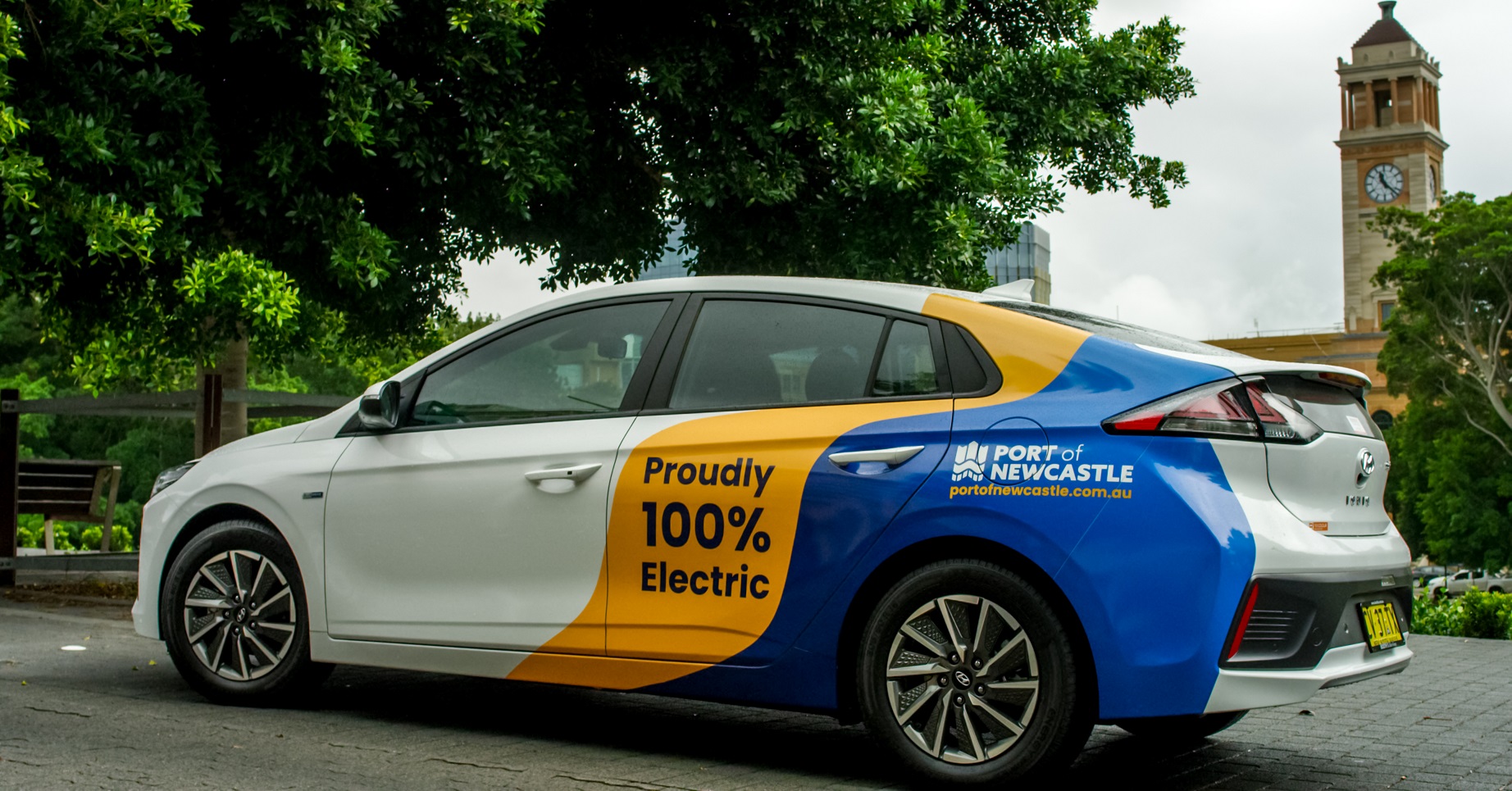
Port of Newcastle has flicked the switch to fully-electric vehicles across its operations in the latest step towards achieving its sustainability goals.
The Port this week unveiled the first four Hyundai Ioniq electric vehicles, with the rest of the organisation’s vehicles to transition by the end of 2021 as other suitable models become available.
Through a partnership with City of Newcastle, the Port is also sponsoring two electric vehicle charging stations located near its head office on Wharf Road.
The 22-kilowatt chargers – collectively enabling four vehicles to be plugged in simultaneously – are the latest additions to the city’s network and are powered by 100% renewable energy.
Port of Newcastle Chief Commercial Officer Simon Byrnes said partnerships were critical to achieving the Port’s diversification and sustainability goals.
“It is a pleasure to partner with the City of Newcastle to help expand its electric vehicle charging network and promote renewable energy and sustainable transport options in the region,” Mr Byrnes said.
“Switching to electric vehicles will save more than 48 tonnes of carbon emissions annually.
“Port of Newcastle is serious about its commitment to the environment and creating a prosperous future for the communities it supports. Ultimately, we are striving to create a safe, sustainable and socially responsible Port for the future.”
Earlier this year, Port of Newcastle became the first port in Australia or New Zealand to be certified under the EcoPorts Port Environmental Review System (PERS), the global environmental and sustainability standard for the ports sector.
The Port is also offsetting historic and future emissions from its domestic and international flights, saving 208 tonnes of CO2 annually.
Newcastle Lord Mayor Nuatali Nelmes said Novocastrians were increasingly embracing sustainable transport and that the new installation had been strategically located.
“This third charging hub is part of readying Newcastle for a future in which Australians dramatically reduce their transport emissions by driving renewable energy-powered EVs,” Councillor Nelmes said.
“There are now 19 different EV models available in Australia with a typical range of 480km, and we’re seeing more and more on local streets.
“We’ve located this facility close to inner-city businesses and tourist attractions in the hope that, like chargers installed in Wallsend’s town centre, they draw motorists from the M1 Motorway.
“We are delighted to partner with the Port of Newcastle in leading this transition to more sustainable transport, which we outlined in our own 2017 Smart City Strategy.”
The new chargers will initially be free before user-pay fees are later introduced.
Port of Newcastle
Port of Newcastle is a major Australian trade gateway handling 4,600 ship movements and 171 million tonnes of cargo each year. With its annual trade worth about $25 billion to the New South Wales economy, the Port enables businesses across the state to successfully compete in international markets. With a deepwater shipping channel operating at 50% of its capacity, significant port land available and enviable access to national rail and road infrastructure, Port of Newcastle is positioned to further underpin the prosperity of the Hunter, NSW and Australia. As custodians of the region’s critical asset, Port of Newcastle is diversifying its trade as it strives to create a safe, sustainable and environmentally and socially responsible Port that realises its potential.
